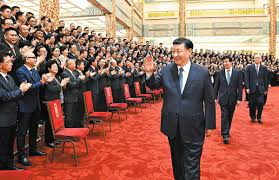UK retailers crank up search for savings ahead of April tax hikes

Britain’s big retailers, including Tesco, Sainsbury’s, M&S and Next, say they are stepping up their drive for efficiency through automation and other measures, to limit the impact of rising costs on the prices they charge their customers.
As the UK economy struggles to grow, the new Labour government’s solution is a hike in employer taxes to raise money for investment in infrastructure and public services, which has prompted criticism from the business community.
Retailers have said the increased social security payments, a rise in the national minimum wage, packaging levies and higher business rates — all coming in April — will cost the sector 7 billion pounds ($8.6 billion) a year.
Concerns of the wider economic impact sent retail share prices sharply lower this week and drove up government borrowing costs.
In the retail sector, larger players have more scope to adapt and are cushioned by previous healthy profits, but analysts have said smaller players could find themselves under severe pressure.
Clothing retailer Next said it faced a 67 million pounds increase in wage costs in its year to end-January 2026, but still forecast profit growth.
It reckons it can offset the higher wage bill with measures including a 1.0 per cent increase in prices that it said was “unwelcome, but still lower than UK general inflation”. It can also increase operational efficiencies in its warehouses, distribution network and stores, the company said.
CEO Simon Wolfson said more automation was inevitable across the sector.
“With any mechanisation project you’re always looking at a pay-back on it – you’re saying ‘what’s the saving versus the cost of the mechanisation, or AI or software’,” he told Reuters.
“If the price of the mechanisation doesn’t go up, but the price of the labour it saves does go up, it’s going to mean that more projects can be justified.”
Baker and food-to-go chain Greggs last year opened a highly automated production line at its Newcastle, northeast England, site, meaning it can make up to 4 million more steak bakes and other products each week from its current 10 million. Tesco, Britain’s biggest supermarket, is also increasing automation and will open a robotic chilled distribution centre in Aylesford, southeast England, this year.
No 2 grocer Sainsbury’s is encouraging more shoppers to use its SmartShop handheld self-scanning technology. Even though Tesco faces a 250 million pound annual hit from the hike in employer national insurance contributions alone, CEO Ken Murphy said it would cope.





